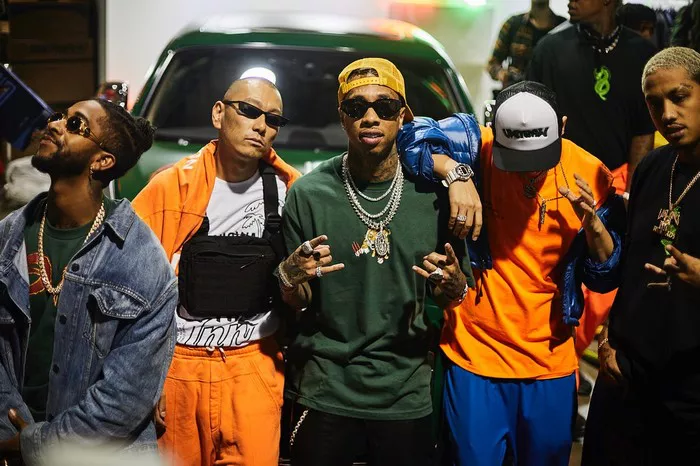Rap Music: a genre that has, over the years, ignited passionate debates about its moral implications within various communities. From its roots in the African American culture to its global influence today, rap music has faced its fair share of criticism and praise alike. In this article, we will delve into the multifaceted question: Is rap music a sin?
The Origins of Rap Music
To understand the complexities surrounding rap music, we must first explore its origins. Rap music, often referred to simply as “rap,” traces its roots back to the streets of New York City in the 1970s. The emergence of rap music was a response to the social and economic challenges faced by African American and Latino communities. It served as a powerful form of self-expression for individuals who felt marginalized by society.
The Evolution of Rap Music
Since its inception, rap music has evolved significantly. From the early days of block parties and underground battles, it has grown into a global cultural phenomenon. Rap music now encompasses a wide range of styles, themes, and artistic expressions. Some artists use rap to address social issues, while others focus on personal experiences and storytelling. Regardless of the approach, rap music remains a vibrant and influential genre in contemporary music.
Rap Music’s Influence on Society
Rap music has undoubtedly left an indelible mark on society. It serves as a mirror reflecting the realities of the communities from which it emerged. However, this influence is a double-edged sword. While rap music can empower individuals and bring awareness to social issues, it can also perpetuate negative stereotypes, glorify violence, and promote materialism. The impact of rap music on society is a subject of ongoing debate.
The Moral Dilemma Surrounding Rap Music
The question of whether rap music is a sin often centers on its lyrical content. Many critics argue that certain rap songs contain explicit language, promote drug use, objectify women, and celebrate criminal activities. These elements have led some religious leaders and moralists to condemn rap music as sinful and corrupting. However, others contend that rap music is an art form that reflects the harsh realities of life and should be evaluated in its proper context.
Rap Music and Freedom of Expression
One of the fundamental principles of democracy is freedom of expression, and rap music is no exception to this right. Artists argue that their lyrics are a form of self-expression and storytelling, and they should not be censored or judged solely based on moral standards. Critics, on the other hand, assert that freedom of expression does not absolve artists of responsibility for the content they produce, especially when it may negatively impact vulnerable audiences.
Rap Music as a Platform for Social Commentary
Beyond the controversies, rap music has often been a powerful platform for social commentary and activism. Many rap artists use their music to address issues such as racism, police brutality, poverty, and inequality. Songs like “Changes” by Tupac Shakur and “Alright” by Kendrick Lamar have become anthems for social justice movements. In this context, rap music can be seen as a force for positive change in society.
Rap Music’s Impact on Youth
The influence of rap music on youth culture cannot be underestimated. Young people are particularly susceptible to the messages conveyed through music, and rap is no exception. The prevalence of explicit content in some rap songs has raised concerns about its impact on impressionable minds. Parents, educators, and psychologists continue to grapple with the question of how to navigate rap music’s influence on young listeners.
The Role of Responsibility in Rap Music
Rap artists occupy a unique position in the cultural landscape. They have the power to shape public opinion and influence the attitudes and behaviors of their listeners. With this influence comes a moral responsibility. Some argue that rap artists should use their platform to promote positive messages and discourage harmful behaviors. Others contend that artists should have the freedom to create art without being burdened by societal expectations.
Rap Music’s Reflection of Society
To pass judgment on rap music as a whole, one must consider its role as a reflection of society. Rap artists draw inspiration from their lived experiences, which often include poverty, violence, discrimination, and other societal ills. Critics argue that condemning rap music is tantamount to ignoring the very issues it exposes. Instead, they suggest that society should focus on addressing the root causes of these problems.
Rap Music: A Diverse Genre
It is important to recognize that rap music is a diverse genre with a wide range of voices and perspectives. Not all rap songs contain explicit content or glorify negative behaviors. Artists like Common, Lauryn Hill, and Kendrick Lamar have used rap as a medium to convey thought-provoking and socially conscious messages. In this diversity lies the potential for rap music to be a force for positive change.
Conclusion
In conclusion, the question of whether rap music is a sin is a complex and multifaceted one. Rap music, with its roots in marginalized communities and its ability to address social issues, has both positive and negative aspects. It can be a platform for self-expression, social commentary, and activism, but it can also perpetuate harmful stereotypes and behaviors. Ultimately, the answer to the question depends on one’s perspective and values.
As we navigate the ongoing debate surrounding rap music, it is crucial to approach the genre with an open mind and engage in constructive dialogue. By doing so, we can better understand the nuances of rap music’s impact on society and work towards a more inclusive and informed conversation about its role in our lives. Whether rap music is seen as a sin or a form of artistic expression, it undeniably continues to shape and reflect the world in which we live.

